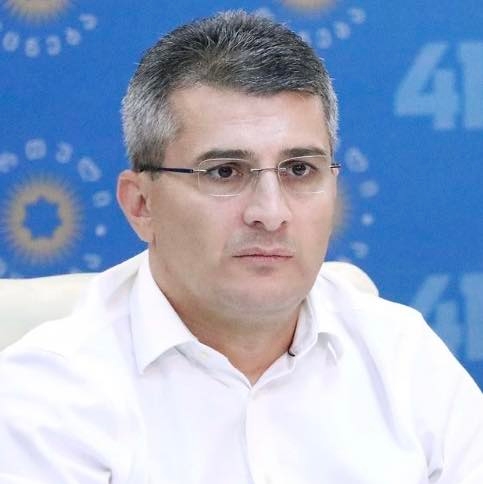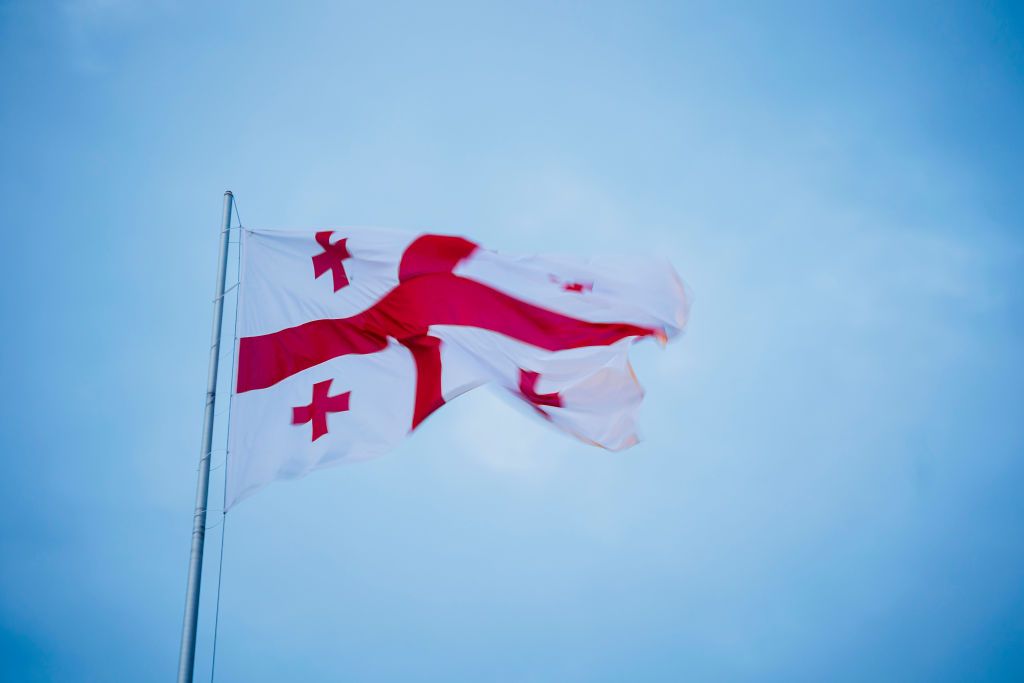Ruling party in Georgia will again try to pass 'foreign agents' law withdrawn following protests in 2023

The ruling Georgian Dream party will try again to pass a controversial measure known as the "foreign agents" law requiring organizations that receive foreign funding to be labeled as such.
Mamuka Mdinaradze, the party's leader in parliament, announced that the bill would be revived on April 3.
The bill, popularly known in Georgia as the "Russian law" for its resemblance to similar legislation passed there, was introduced previously in early 2023 by the Georgian Dream party.
Widespread demonstrations broke out in protest, and the bill was eventually scrapped in March 2023.
Mdinaradze said that the new form of the bill would remain largely the same as the previous iteration, albeit with a few minor rhetorical changes. He added that the party will try to move the bill through parliament by the end of June.
Prime Minister Irakli Kobakhidze, his predecessor Irakli Garibashvili, and other Georgian Dream officials have taken inconsistent positions on Russia and its full-scale war on Ukraine.
Georgian Dream has also previously tried to pass other legislation that critics argue is inspired by Russia.
Mdinaradze proposed laws in March that would significantly crack down on LGBTQ+ rights in the country.

Georgia's opposition reacts
Opposition media in Georgia immediately reacted to the news, writing that "Georgian Dream will try again to adopt the Russian law."
Lawmaker Anna Tsidlidze, a member of the opposition United National Movement party associated with former President Mikhail Saakashvili, said the "Russian law will harm Georgia's European integration."
"Georgian Dream dared again and introduced the Russian legislation in the parliament," said opposition lawmaker Khatia Dekanoidze, appealing to those who previously came out to protest to demonstrate again.
"We all must do everything together to not allow the Georgian dream to go backwards in our country."
Tensions rose as the proposal was being debated in parliament, and videos shared by the Georgian public broadcaster showed a physical fight almost breaking out among lawmakers.
Shalva Papuashvili, the speaker of the Georgian parliament and a member of the Georgian Dream party, threatened to turn off the microphone of any other lawmaker who used the term "Russian law."
Others pointed to the proposed timing of the bill's passage through parliament, aligning with the European Football Championships, which the Georgian national team just secured a place in for the first time.
Nika Gvaramia, a former justice minister and a prominent opposition journalist, said, "This is a trap, the law is not being passed in a fast-track manner just because it is planned to be passed during the European Championship in June, so that people cannot protest."
Gvaramia was jailed in 2022 on charges widely considered to be politically motivated. He was pardoned by President Salome Zourabichvili, a political opponent of Georgian Dream, in June 2023.

Georgia is holding parliamentary elections in October 2024, which some pointed to as being connected to the revival of the bill.
Lincoln Mitchell, who teaches at the School of International Affairs and Department of Political Science at Columbia University, told the Kyiv Independent that the government is "trying to disempower the organizations with international funding that might put a closer eye on the election (or) might be more aggressive in catching whatever incidents of election fraud" that could occur.
At the same time, this is a "very ineffective way to do that," Mitchell said, because "it's kind of daring the opposition to go out there and take to the streets."
An additional hurdle for Georgia's European aspirations
The news also brought international condemnation from EU countries.
Ukraine, Georgia, and Moldova all applied for EU membership after the beginning of Russia's full-scale invasion of Ukraine in February 2022. The European Commission offered Georgia candidate status in November 2023, while Moldova and Ukraine were granted official recommendations to begin accession talks.
While Ukraine and Moldova have made significant steps toward the EU-mandated reforms required for accession to the bloc, Georgia has made only minimal progress and runs the risk of drifting toward Russia, a report released in January found.
European lawmakers said that the revival of the foreign agents law is yet another step away from the path toward EU integration.

"Looks like the ruling party of Georgia is turning towards the Euro-Asian tyranny. There is no compromise between (the) EU and the (latter) one as democratic criteria is not (up) for negotiation," said Petras Austrevicius, a member of the European Parliament from Lithuania.
Mitchell told the Kyiv Independent that the bill if passed, will "hurt Georgia's chances of moving forward (with EU candidacy), full stop."
Despite Georgian Dream's public statements about wanting to join the EU, the "goal of Georgian Dream is to win the next election and remain in power," Mitchell said.
"The goal of Georgian Dream is not to get into Europe."
Many international human rights organizations and foreign governments previously criticized the proposal when the earlier form of the bill was considered in 2023.
"The 'foreign agents' bill seeks to marginalize and discredit independent, foreign-funded groups and media that serve the wider public interest in Georgia," said Hugh Williamson, Europe and Central Asia director at Human Rights Watch.
Other countries in the region have passed or attempted to pass similar laws.
Kyrgyz President Sadyr Japarov signed into law on April 2 a "foreign representatives" measure that critics say resembles the Russian foreign agents law.














